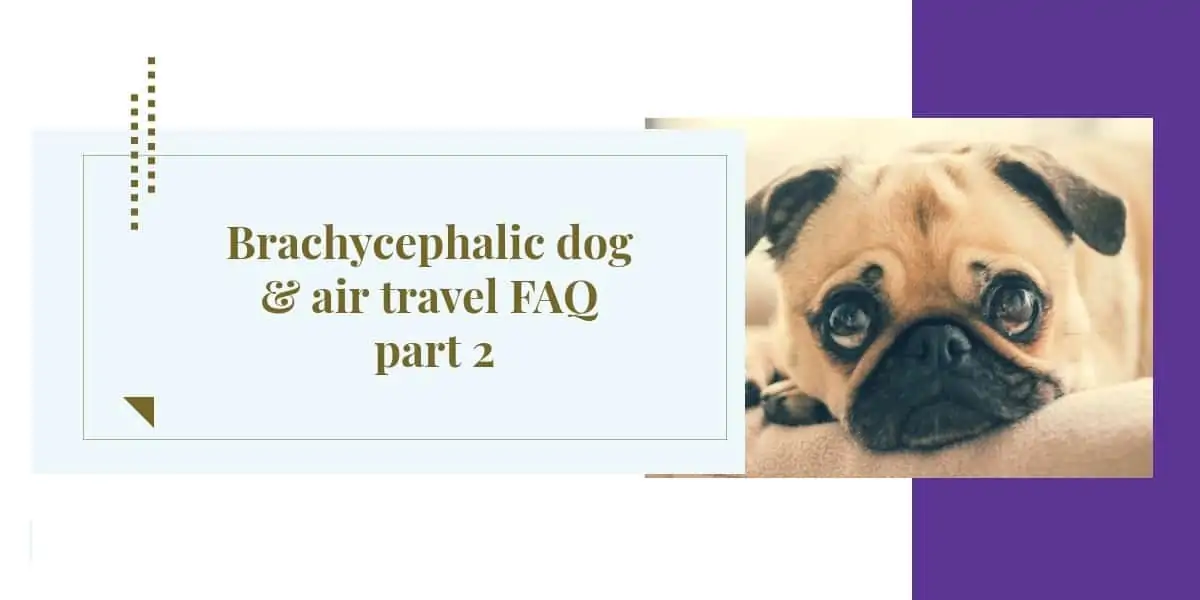
In 2010, the US Department of transportation, after some detailed research released a statistics that pointed that brachycephalic or short-nosed dogs; bulldogs, pugs, boxers and Boston Terriers are more vulnerable to respiratory issues and even death during flights when compared to their counterparts.
The statistics lead to different airlines banning or refusing to fly short-nosed dogs. As per the statistics around half of the 122 report dog deaths during flight were brachycephalic dogs. As a caring parent of a brachycephalic dog, there are several questions that you need to ask yourself prior to flying with your short-nosed pooch.
As per the previous blog post published here on the same topic, you know the reasons why brachycephalic dogs have chronic respiratory problems when flying. The blog post also highlights the precautions to consider while flying with your short-nosed dog.
Picking the airline flight time, does that make a difference?
The time that your pet spends in the cargo definitely influences how easily and efficiently he can handle the whole journey.
As a pet parent, you need to know that the longer the flight stays on the tarmac, larger is the possibility for it become extreme cold or hot in the cargo. This is why we highly recommend that you tune into the flight layover times prior to booking the flight. Moreover, try to choose the flight timing based on the climate. For instance, it is better to choose to fly with your pet early morning or in the evening during the summer season and try to fly during the midday in the winter season.
Should I consult a veterinarian prior to flying with my short-nosed dog?
This is always a smart move, especially if your dog has some health issues like obesity or is already showing some minor signs of respiratory issues. Consider taking your brachy for a detailed checkup at least two weeks prior to the flight and ensure that he is fit to fly. The veterinarian can also provide you with some flying trips based on your pooch’s health conditions.
Additionally, the veterinarian can also help you to choose the kind and size of crate or carrier to use. He can also advise you on the diet play during the flight hours. For instance, how long before the flight you have to feed him and how much water you can provide him with before and after the flight. This information also comes tailored with respect to the climatic conditions as well.
Should I tranquilize my brachy prior to the flight?
Tranquilizing the pet prior to the flight is not a good idea. As per the statistics, this can increase the risk of health issues or injuries.
Traveling with short-nosed dogs can be challenging, as a responsible pet parent, it is important that you do your homework right as it is your beloved one’s life that you are putting on the line.
